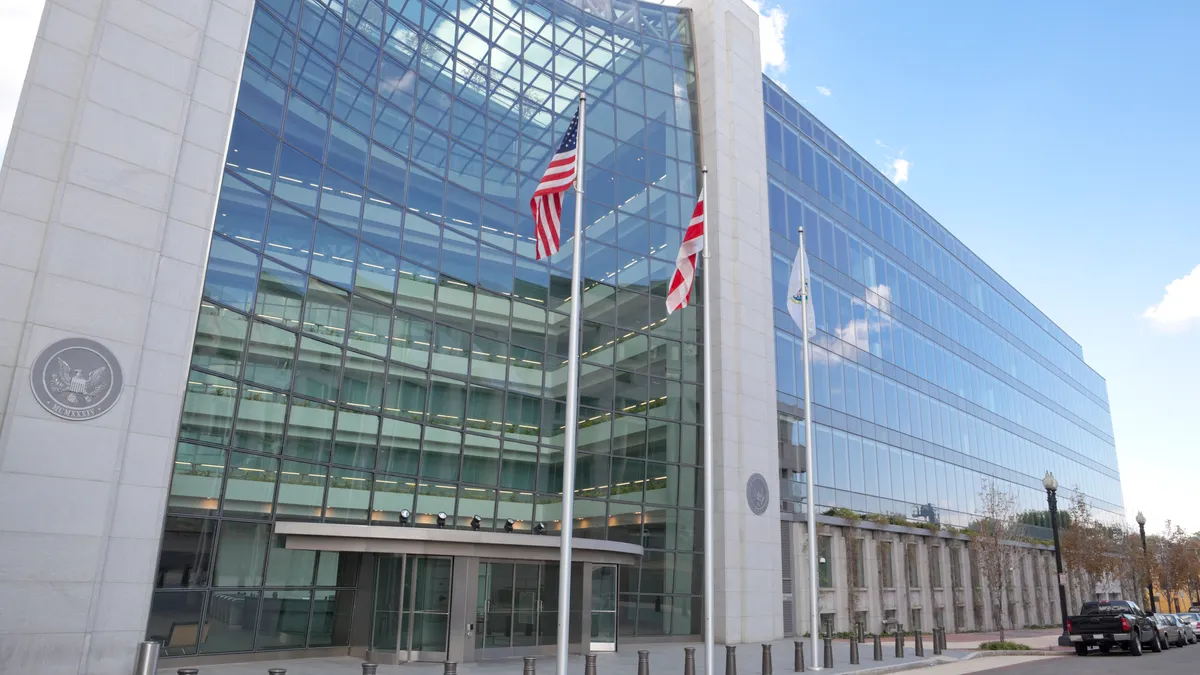Dive Brief:
-
The former CFO of New Jersey-based software provider Synchronoss Technologies must return more than $400,000 in compensation to the company in connection with accounting fraud charges brought by the Securities and Exchange Commission, a New York district court judge held in a recent order.
-
U.S. District Judge Denise Cote of the Southern District of New York granted the SEC’s motion for partial summary judgment in the case, finding sufficient evidence that former CFO Karen Rosenberger played a role in the software company’s improper accounting of revenue for certain transactions.
-
The commission alleges that Rosenberger “aided and abetted” the company’s public filing of materially false financial statements with respect to five customer transactions. She was also accused of trying to cover up the company’s alleged misconduct by lying to its auditor as well as falsifying books and records. The partial summary judgment order pertains to two of the transactions at issue: the company’s sale of its local network portability, or LNP, software to AT&T and its sale of perpetual software licenses to Windstream Communications.
Dive Insight:
The SEC announced in June 2022 that it settled with Synchronoss, which primarily serves telecommunications companies, over charges that it engaged in “long-running accounting improprieties” that ran from 2013 to 2017.
Without admitting to or denying the SEC’s findings, Synchronoss agreed to cease and desist from violating securities laws and to pay a civil penalty of $12.5 million.
In addition, the company’s founder and former CEO, Stephen Waldis — while not charged with misconduct — agreed to reimburse the company for more than $1.3 million in stock sale profits and bonuses as well as to return previously granted shares of company stock pursuant to Section 304 of the Sarbanes-Oxley Act.
Along with the settlement, the SEC announced a related lawsuit against Rosenberger and former Synchronoss Controller Joanna Lanni.
“Investors are entitled to rely on financial statements that are free of accounting improprieties, and when an issuer and its executives and employees engage in accounting gimmicks, we will use every available tool, including significant corporate penalties and individual accountability, to address such misconduct,” Gurbir Grewal, director of the SEC’s Division of Enforcement, said in a statement at the time.
The action also served to put public company executives on notice that “even when they are not charged with having a role in the misconduct at issue, we will still pursue clawbacks of compensation under SOX 304 to ensure they do not financially benefit from their company’s improper accounting,” Grewal added.
In her ruling, Cote said the SEC provided sufficient evidence to demonstrate that Rosenberger knowingly and intentionally made a material misrepresentation about Synchronoss’ revenue in connection with the reporting of $3 million in revenue from the LNP software sale to AT&T in a 2015 Form 10-K and February 2016 Form 8-K, and in so doing “acted with intent to deceive.”
Cote also found sufficient evidence that both Rosenberger and Lanni played a role in the falsification of records related to the Windstream transaction.
As part of the order, Rosenberger was held liable under SOX 304 for reimbursement of $430,741 to Synchronoss. The judge denied in their entirety Rosenberger’s and Lanni’s cross motions for summary judgment.
Attorneys for Rosenberger and Lanni didn’t immediately respond to requests for comment.












